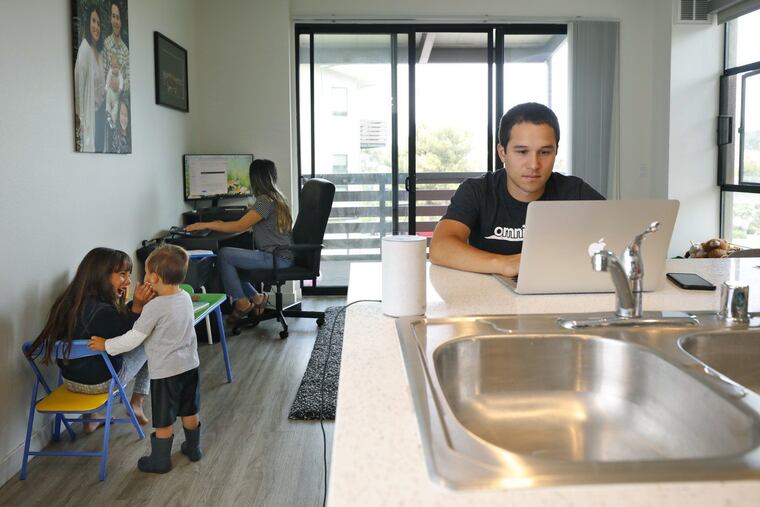Do I hate my job? Penn psychologist explains how working from home has changed our perspective. | Expert Opinion
So much has changed for all of us since last March, and as we head toward completing a year of quarantine, many of us have adapted to this “new normal”. But adapting, doesn’t mean we’re thriving.

So much has changed for all of us since last March, and as we head toward completing a full year of relative quarantine, many of us have adapted to this “new normal.” But adapting doesn’t mean we’re thriving. We know that people are feeling more burned out and more fatigued, while also having greater symptoms of depression and anxiety.
And you may have wondered, is it me or is it my job? The answer is probably both.
Last March, many of us went to work one day, to find out the next day that we would no longer be heading to our offices. We kicked into “crisis mode” and thought, I can do this. We teamed up, came together, made the necessary adjustments and got to work. But as the months progressed, it has felt less like a challenge, and more like a slog. Many people are feeling burned out, due to ever-changing protocols, an endless barrage of emails, increased emotional reactivity from others and ourselves, and some even have tiny “coworkers” who, although cute, are no help at all.
Working from home means we also don’t have that collegiality we used to have with our coworkers. We don’t know how our colleagues’ weekends went, we don’t know what house project they are working on, and most important, we don’t get to connect with them around our shared humanity. Work relationships have become very transactional; we know that our coworkers are likely calling not to grab a cup of coffee but are probably asking us to do or fix something work-related.
The pandemic has highlighted what we love and what we don’t enjoy about our jobs. So before you quit your job, ask yourself the following:
Why did I get into this profession?
Where are my core values represented in the work I do?
What parts of my job have changed, and what has stayed the same?
When I used to enjoy my job more, what was different, if anything?
It’s important to figure out if your job has changed or if you’ve changed, and if it’s “yes” to both questions (which it likely is), you might need to explore what needs to be adjusted. We can’t change the pandemic, but do we have any ability to change aspects of our jobs that are causing us stress? If we can’t, we need to figure out how to manage these things within the immovable limitations. You might need to advocate for change, which may prove difficult. Here are some questions to consider:
What do I have control over, and what do I not have control over?
Who can I talk to about my concerns?
How could I off-load some of the things that are causing me stress at work?
Also, remember that we don’t have many of the same coping strategies we’re used to, which makes it difficult to figure out the source of our low mood and anxiety. That’s why it’s extra important to reevaluate our self-care plans:
Am I exercising, eating regularly, and getting seven to eight hours of sleep a night?
What helps me to disconnect from stress?
What feels recharging/life-giving for me?
It also seems like a no-brainer to be taking our vacation time when we are stressed, but interestingly, many people are not using their vacation time because they are waiting to use it for something more exciting in the future, or sadly, protecting it if they need time for COVID-19 related absences. But we need this time away from work. For many of us who are working from home, we have all the relative flexibility and none of the boundaries. Take intentional time away from work, and create boundaries with technology just like we encourage kids and teens to do. Here are some ways to set boundaries:
Physical separation from devices.
Away message for emails when not at work.
Not checking emails when not “on the clock.”
Turning off work email/Slack channel/Teams notifications.
You might find that you are more confused than ever about what is bothering you, but know that these feelings are normal. Take the time to sit with your feelings and enjoy the journey. By asking yourself these hard questions, you’ll either find new ways to enjoy your job again, or realize it’s time to think about next steps.
Thea Gallagher is a clinical psychologist and an assistant professor at the University of Pennsylvania. She is the director of the outpatient clinic at Penn’s Center for the Treatment and Study of Anxiety, and the clinical director of COBALT, a wellness platform for Penn employees. She also hosts a mental health-focused podcast called Mind In View.